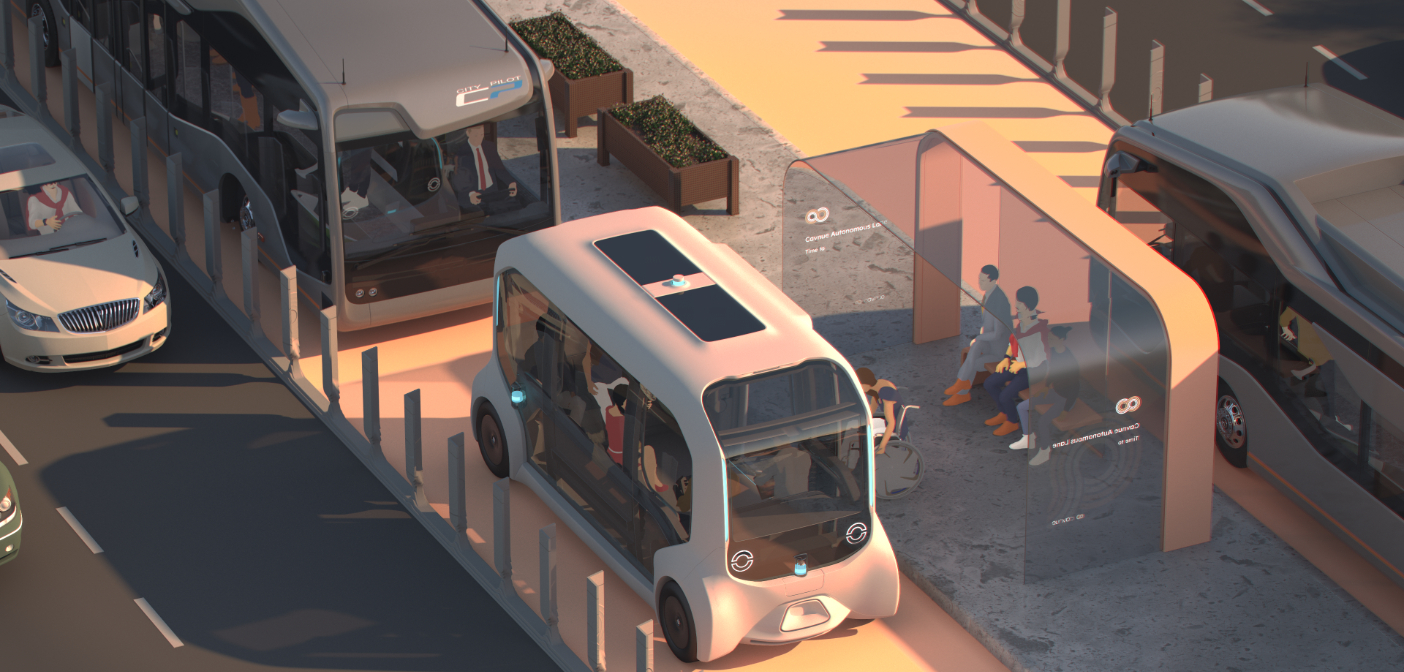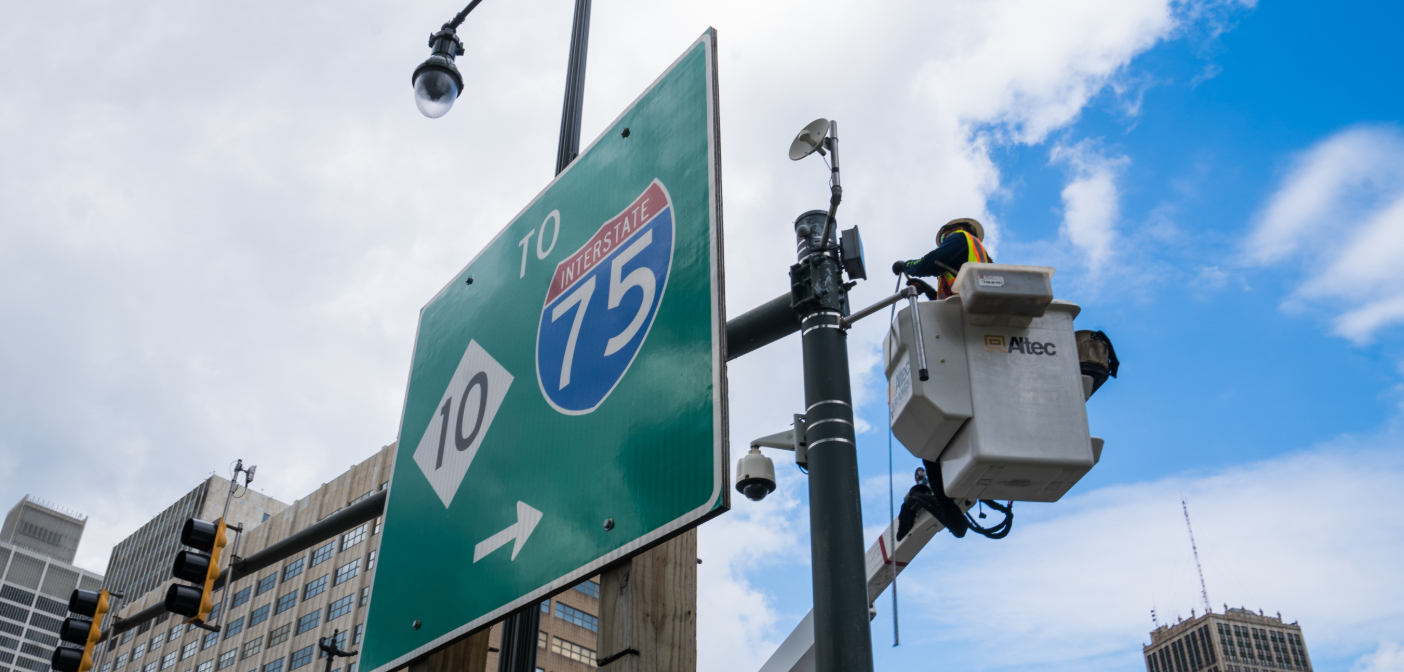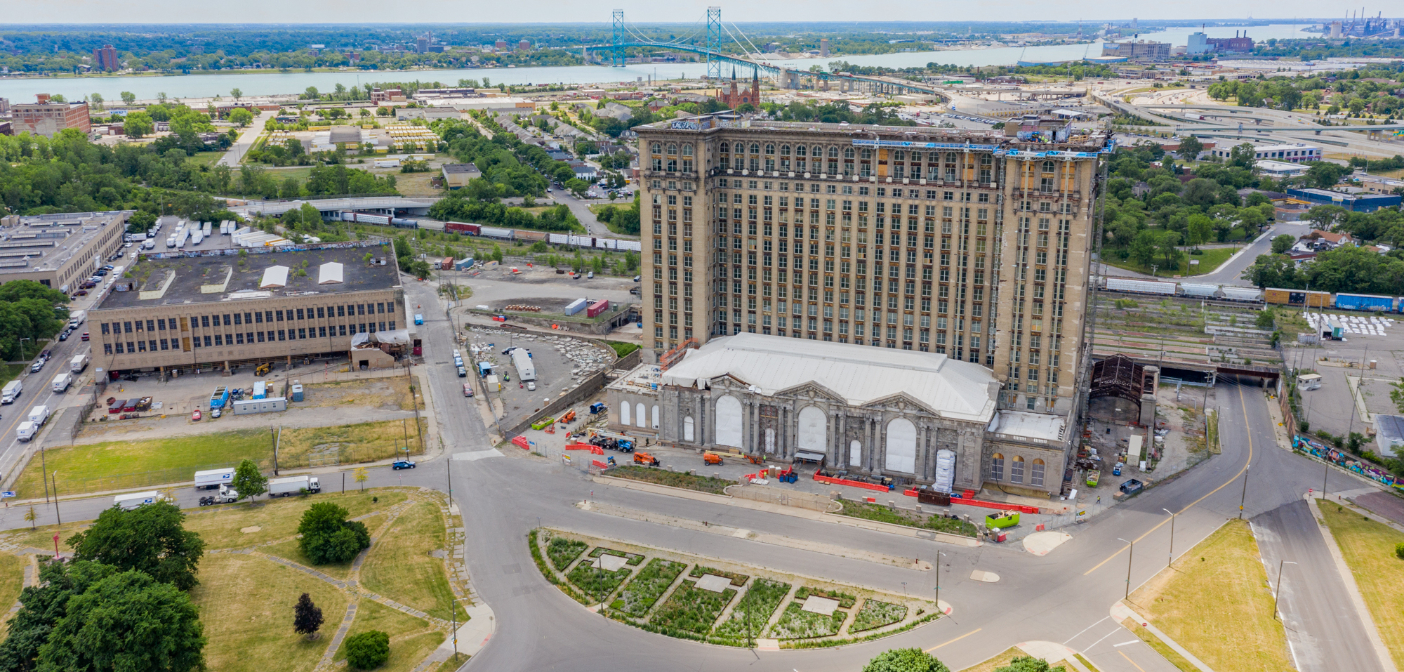A first-of-its-kind corridor for connected and autonomous vehicles (CAVs) has been announced for the USA’s southeast Michigan, intended to improve transportation for communities.
The Michigan Connected Corridor project will be led by Cavnue, a subsidiary of Sidewalk Infrastructure Partners and designer of CAV infrastructure, and one of its main goals will be to shape the corridor with a focus on closing long-standing gaps in access to transit and transportation across the region.
The first phase of the project – expected to last approximately 24 months – will test technology and explore the viability of a more than 40-mile driverless vehicle corridor between downtown Detroit and Ann Arbor in Michigan. The vision for the corridor is to create lanes that are purpose-built to accelerate and enhance the full potential of CAVs and move people.
Michigan governor, Gretchen Whitmer, said: “The action we’re taking today is good for our families, our businesses and our economy as a whole. Here in Michigan, the state that put the world on wheels, we are taking the initial steps to build the infrastructure to help us test and deploy the cars of the future.
“As we rebuild our roads to ensure every Michigander can drive to work and drop their kids at school safely, we will also continue working to build smart infrastructure to help prepare us for the roads of tomorrow. In Michigan, where the health of our workers and our economy are directly tied to the health of our auto industry, we will continue this innovative work to secure our state’s position as the automotive capital of the world.”

Cavnue will develop OEM-neutral standards and technology for the implementation of the corridor and permit CAVs meeting specified safety and other standards to operate on the corridor regardless of the vehicle manufacturer.
To achieve its goal, Cavnue will work with regional partners to plan, design and develop the world’s most sophisticated roadway, combining innovations in physical, digital, coordination and operational infrastructure to help increase the safety, efficiency, resilience and operations of roadways, and improve the mobility experience for users by enabling a faster and more coordinated dedicated autonomous mobility corridor.
Cavnue will spearhead the project but also draw on insight from other autonomous mobility companies including, Ford, General Motors, Argo AI, Arrival, BMW, Honda, Toyota, TuSimple and Waymo. Cavnue said it expects to draw on an ecosystem of partner firms that bring global and Michigan-based capabilities in mobility, infrastructure and technology, planning, development, research and engineering.
The project is designed to be ‘future-proofed’ and evolve to meet transportation goals, beginning with connected buses and shared mobility vehicles such as vans and shuttles, and expanding to additional types of CAVs such as freight and personal vehicles.

The project will also advance key policy goals, including improving safety; achieving neutrality among vehicle OEMs through standards-based approaches; enhancing accessibility, affordability and equity; and aligning with regional planning, thus encouraging innovation, R&D, economic development, open data access and shared learnings, cybersecurity and replicability.
Throughout the planning and development process, stakeholders will evaluate potential impacts on the transportation workforce and ensure that it supports good-paying jobs.
The project envisions connecting Detroit and Ann Arbor along with key communities and destinations along Michigan Avenue and Interstate 94 in Wayne County and Washtenaw County with an innovative infrastructure solution that allows for a mix of CAVs, conventional transit vehicles, shared mobility, and freight and personal vehicles.
It will build on existing investments made by the state of Michigan and local communities in smart infrastructure and transit and will link key destinations including the University of Michigan, Detroit Metropolitan Airport and Michigan Central Station.
The corridor includes up to a dozen ‘Opportunity Zones’, where expanded mobility will connect individuals, small businesses and communities to southeast Michigan’s most important industrial, technological and academic clusters. This includes leading test tracks, universities, automotive companies and key economic anchors.

The announcement took place in front of Michigan Central Station, which Ford purchased in 2018. The station will be the centrepiece of the innovation district where new mobility solutions will be created and tested on smart infrastructure, including the Michigan Mobility Corridor.
“My vision for Michigan Central is to create an open mobility innovation district that solves tomorrow’s transportation challenges and improves mobility access for everyone,” said Bill Ford, executive chairman, Ford Motor Company.
“Building out a connected corridor cements Michigan as a leader in creating a more connected, autonomous and electrified future. We thank the state for recognising the community and economic benefits and the importance of creating smart infrastructure across southeast Michigan.”





